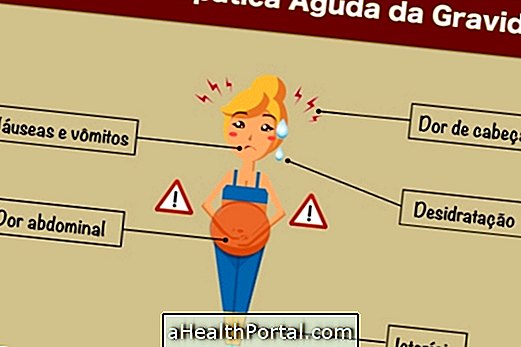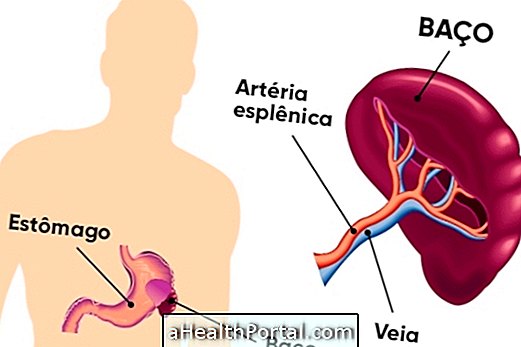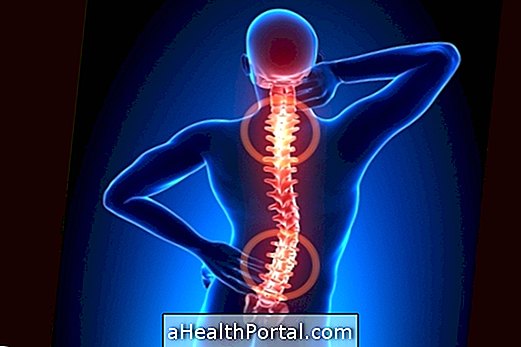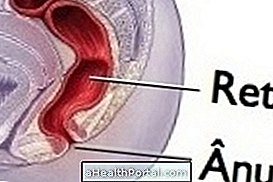To know if it is appendicitis, it is necessary that the doctor observe the signs and symptoms presented by the person affected, and the most striking features include abdominal pain that starts in the center of the abdomen or navel, which migrates to the right side with the passing hours and may be accompanied by lack of appetite, vomiting and fever around 38ºC.
Confirmation of the diagnosis is made by the physician, with the physical evaluation by the palpation of the abdomen, and tests such as hemogram and ultrasound, which can detect the signs of inflammation typical of appendicitis.

Signals and symptons
The main signs and symptoms that indicate appendicitis are:
- Abdominal pain or discomfort that starts in the central region of the abdomen or navel, and migrates to the lower right side after about 6 to 12 hours. The pain may worsen with movement and coughing, but it does not improve with gas elimination or evacuation, which helps differentiate from cramps caused by gas or constipation;
- Lack of appetite ;
- Nausea and vomiting ;
- Fever around 38ºC.
Diarrhea is uncommon in cases of appendicitis. In addition, if the condition becomes severe, such as by a perforation, abdominal pain may become intense and spread throughout the abdomen, and fever may become elevated and accompanied by an increase in heart rate. Learn more about identifying the symptoms of appendicitis.
How to confirm
To confirm the diagnosis of appendicitis, the physician performs the clinical evaluation of the patient, with analysis of the symptoms and physical examination, which includes the palpation of the abdomen to detect changes suggestive of inflammation.
Tests that help the doctor confirm appendicitis and rule out other possibilities include abdomen x-ray, ultrasound, or computed tomography, as well as urine, stool, and blood tests.
It is important to remember that not all cases follow the exact rules, and the clinical picture may vary from person to person. In this way, it can be difficult to confirm the cause of the pain in some cases, since an abdominal pain can have several reasons. Find out what are the main causes of abdominal pain and when it can be serious.
How is the treatment?
For the treatment of appendicitis, the doctor usually indicates the use of antibiotics and a surgery to remove the appendix, because it is an inflammation difficult to control, with the risk of organ rupture, which would increase the chances of death of the individual. Understand the causes of appendicitis, diagnosis, treatments and which doctor to look for.



















